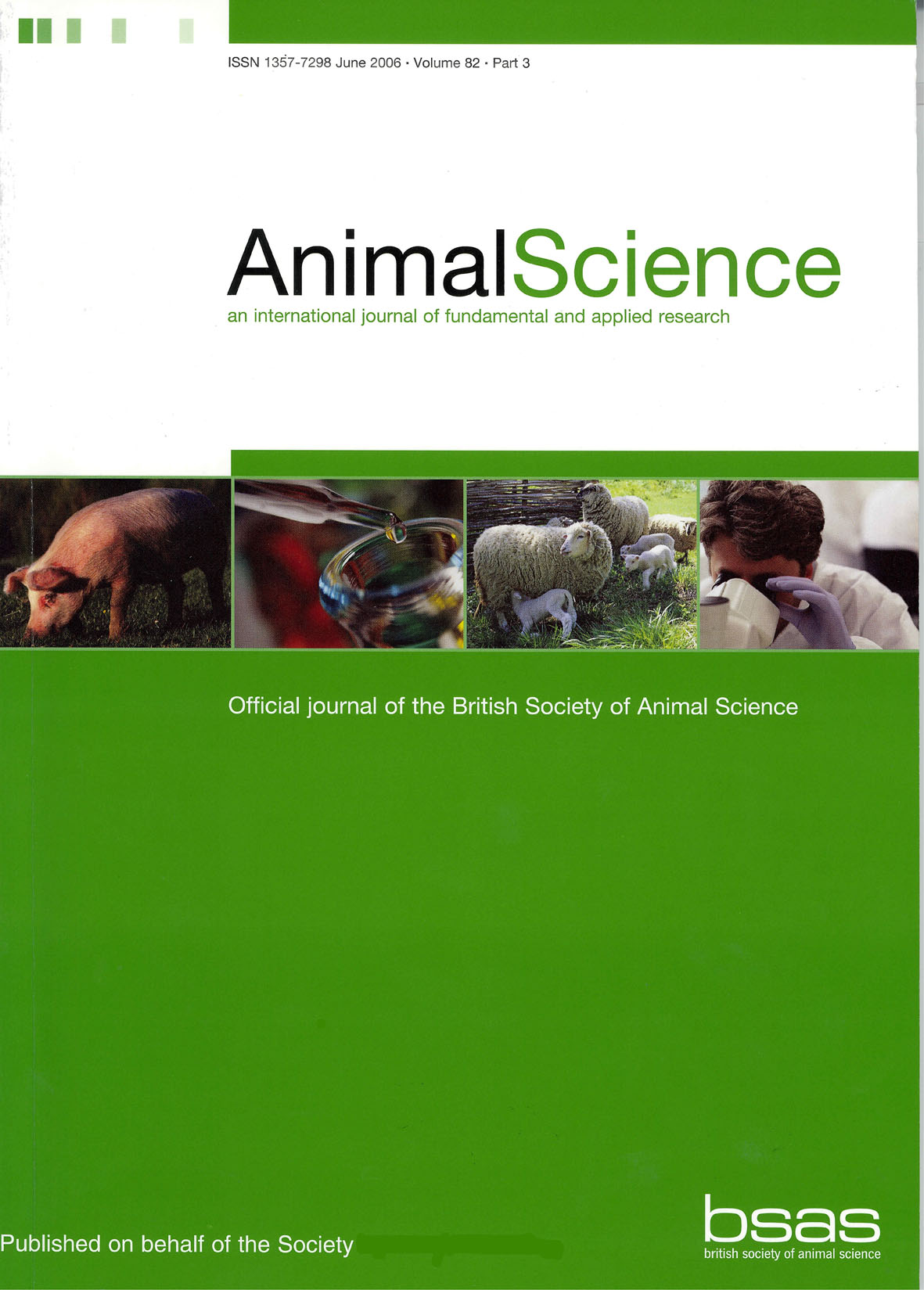Article contents
Effects of pre-partum oestradiol injection on parturition in sows and piglet survival
Published online by Cambridge University Press: 02 September 2010
Abstract
Fifty-four multiparous Yorkshire × Landrace sows were allocated equally to receive an intramuscular (i.m.) injection of 3 ing oestradiol-17β (E2) or no injection at 112 days of gestationto determine the effect of E2 on the timing and duration offarrowing. All sows received an injection (i.m.) of 10 mg prostaglandin F2x af 113 days of gestation. Of the soivs allocated to treatment, 21 oestrogen-treated and 19 control sows were assigned to be observed for the onset of parturition. A further six oestrogen-treated and eight control sows were included to increase the data base for litter production. The time of piglet delivery was monitored between 08·00 and 18·00 h on day 114 of gestation. Blood samples were obtained from each offour piglets from four E2-treated and five control litters. More E2-treated (8/21) than control sows (1/19) farrowed before 08.00 h of day 114 (P < 0·05) although, for those sows farrowing during the observation period, there was no effect on the time to onset or duration of parturition. Plasma oestradiol concentrations were higher (P < 0·06) in piglets delivered by E2-treated sows. However,this was not associated with any effect on piglet pre-weaning survival. It is concluded that exogenous oestradiol can influence the timing of onset offarrowing in some sows. Although further refinement in terms of timing of E2 injections is required, it seems likely that exogenous E2 may have a useful role to play in hastening the induction of parturition in sows.
Keywords
- Type
- Research Article
- Information
- Copyright
- Copyright © British Society of Animal Science 1995
References
- 3
- Cited by


